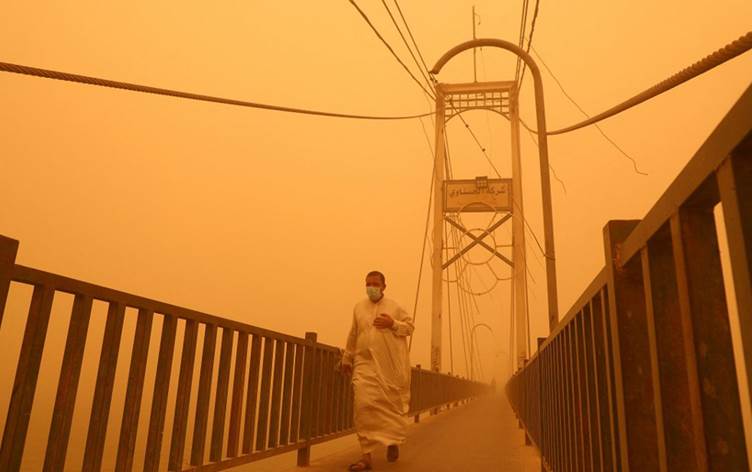
ERBIL, Kurdistan Region – Addressing climate change is important for the future of Iraq, so the country’s environment ministry on Thursday underscored joint initiatives currently underway supported by the German development agency (GIZ).
“Climate change is one of the top priorities of the Iraqi government and one of the most important sectors of the governmental program in Iraq,” Yousif Muyaed, head of the Iraqi government’s directorate of climate change, said in video message on X reshared by Germany’s Consulate in Erbil.
“The Ministry of Environment is coordinating national partners and relevant ministries to drive efforts for implementing national strategies and plans related to climate change,” he added.
While climate change is a global problem, Iraq in 2022 ranked as the fifth-most country vulnerable to climate breakdown in an International Organization of Migration (IOM) report.
GIZ has supported the Iraqi government through the Strengthening Economic Transformation in Iraq (SET) initiative announced in January to implement evidence-based reforms, cooperated to support sustainable business development in Iraq, and worked to support job-matching policies in Iraq’s labor markets.
“This has led to close cooperation with GIZ in executing numerous plans, strategies, and projects. These aim at increasing efficiency and building the capacities of local staff to fulfill Iraq’s commitments towards climate change mitigation and adaptation,” Muaed detailed.
In Iraq, three out of five children do not have access to safely-managed water services, the UN Children’s Fund (UNICEF) stated in a report in 2021.
Through partnership between Baghdad and GIZ, Anbar province has benefitted from projects including water treatment facilities in Fallujah and Heet. The initiatives have sought to improve living conditions in the province and assist in reconstruction following the US invasion and Islamic State (ISIS) conflict.
“The collaboration and coordination with GIZ provided a significant opportunity to strengthen cooperation between Iraq and Germany, exchanging expertise, and enhancing the capabilities of Iraqi staff in this field,” said Muyaed, thanking GIZ and looking forward “to strengthening our future cooperation.”
The Tigris and Euphrates rivers, Iraq’s primary sources of water, have decreased at unprecedented rates in recent decades. In addition to increased domestic water-management initiatives, the Iraqi government has emphasized the need for neighboring Turkey and Iran to release water through strategic dam projects.
The Iraqi and Turkish governments signed a strategic water agreement in April during Turkish President Recep Tayyip Erdogan’s visit to Baghdad.

